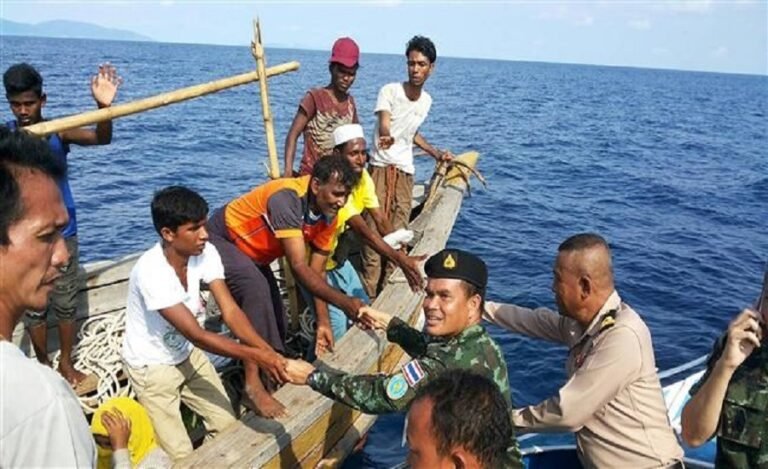
DHAKA (Reuters) — The U.N. High Commissioner for Refugees (UNHCR) said on Monday it was concerned about the safety of 56 Rohingya refugees from Myanmar on a boat bound for Malaysia in stormy seas.
Some 700,000 Rohingya Muslims fled from their homes in Myanmar’s Rakhine State into Bangladesh after militant attacks in August sparked a military crackdown that the United Nations and Western countries have said constitutes ethnic cleansing.
Myanmar rejects that saying its forces have been waging a legitimate campaign against “terrorists” who attacked government forces.
The boat, which a UNHCR spokesman said was believed to have set sail from Rakhine State last week, stopped at an island in southern Thailand on Saturday evening after a storm.
It was the first Rohingya vessel, plying a route refugees have used for years to get to Southeast Asia, to be spotted off Thailand in more than a year. There are signs that overcrowding in Bangladeshi camps could prompt many others to make similarly perilous voyages.
“Given the poor weather conditions currently prevailing in the waters off the west coast of the Thailand-Malaysia border, we are concerned for the safety of the refugees,” said Caroline Gluck, a UNHCR spokeswoman based in southeast Bangladesh.
“If they are found to be in distress, we hope they will be rescued and allowed to disembark in accordance with international maritime law,” she said in an email.
The boat was restocked with essential supplies in Thailand on Sunday before setting back out to sea, on its way to Malaysia, Thai police said.
The UNHCR said it was in touch with Malaysian maritime authorities and was ready to provide any necessary assistance to the refugees when they arrived.
Tens of thousands of Rohingya fled by sea following an outbreak of sectarian violence in Rakhine State in 2012, some falling prey to human traffickers.
That exodus peaked in 2015, when an estimated 25,000 people fled across the Andaman Sea for Thailand, Malaysia and Indonesia.
Rights groups expect another surge in Rohingya boats sailing for Southeast Asia, even if not at the levels of the past.
